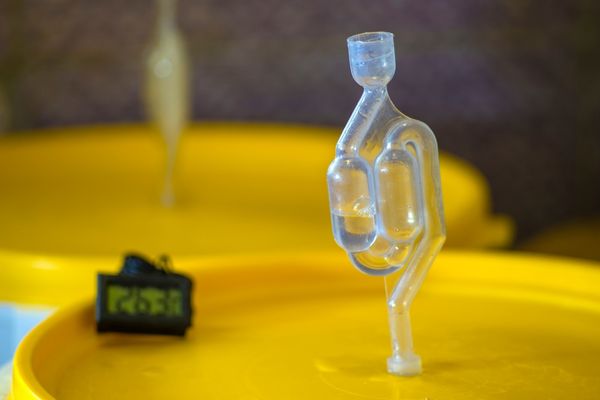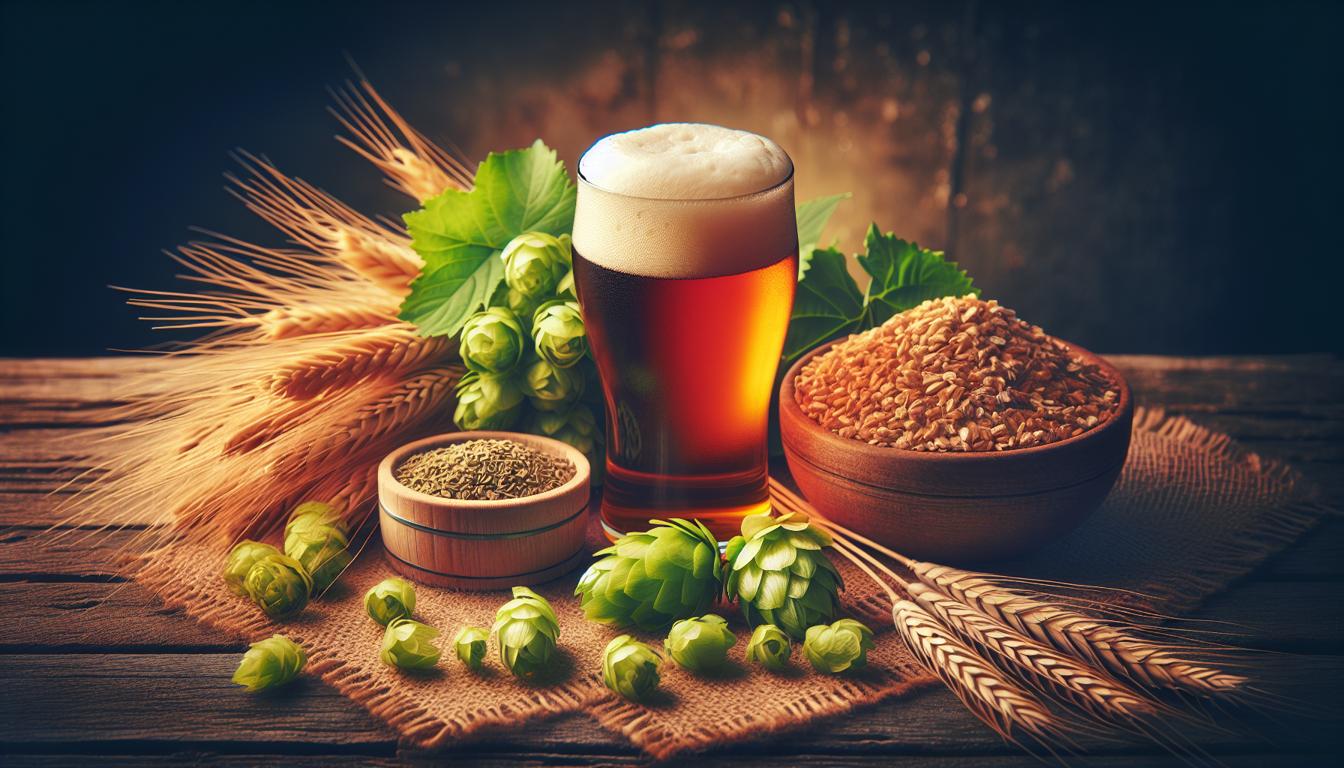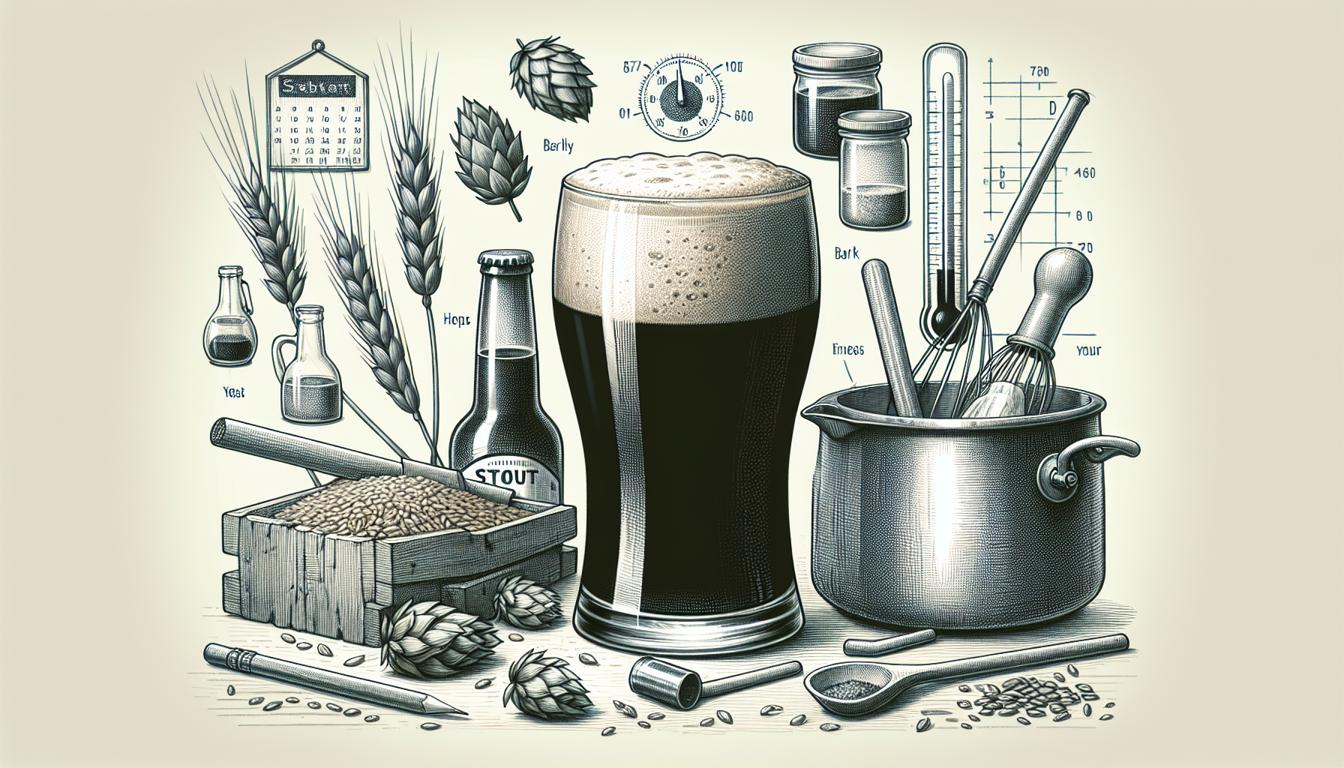As an experienced brewer, one of the most common questions I get asked is: how long does a beer mash take to ferment? The fermentation process is crucial in beer making, as it’s when the yeast works its magic and transforms sugars into alcohol.
The simple answer to this question is that it really depends on several factors, such as the type of yeast used, the fermentation temperature, and the beer style being brewed.
However, the typical fermentation duration ranges from one to three weeks for most homebrews.
In this blog post, we will dive deeper into the factors that determine the fermentation duration and share our personal experiences along the way.
Choosing the Right Yeast
Ale Yeast vs. Lager Yeast
The type of yeast used in the brewing process plays a significant role in determining how long the beer mash will take to ferment.
There are two primary types of yeast used in brewing: ale yeast (top-fermenting) and lager yeast (bottom-fermenting).
Ale yeast generally ferments at warmer temperatures (around 60-75°F or 15-24°C) and typically takes less time to ferment, usually between one to two weeks. This yeast strain is commonly used in beer styles such as pale ales, stouts, and IPAs.

Lager yeast, on the other hand, ferments at cooler temperatures (around 45-55°F or 7-13°C) and takes longer to ferment, usually between two to three weeks. This yeast strain is used in beer styles like pilsners, bocks, and Oktoberfest beers.
Yeast Strain Characteristics
Different yeast strains have unique characteristics, which can also influence the fermentation duration.
Some strains are known for their quick fermentation, while others are slower and require more time to reach the desired alcohol content.
To ensure a successful fermentation, it’s essential to choose a yeast strain that matches the desired beer style and fermentation temperature.
Controlling Fermentation Temperature
Temperature is a crucial factor that affects the fermentation duration and the overall quality of the final product. Yeast is a living organism, and its activity can be influenced by temperature fluctuations.

For a faster fermentation, it’s generally recommended to ferment at the higher end of the yeast’s optimal temperature range. However, be cautious not to exceed the recommended temperature, as this can lead to off-flavors and other fermentation issues.
On the other hand, fermenting at the lower end of the optimal temperature range can result in a slower fermentation, but may produce a cleaner tasting beer.
Monitoring the Fermentation Process
To determine when the beer mash has finished fermenting, brewers need to monitor the fermentation process carefully. This can be done by tracking the specific gravity of the beer using a hydrometer or refractometer.
The specific gravity will decrease as the yeast consumes the sugars and produces alcohol. When the specific gravity remains constant for two to three consecutive days, it’s a good indication that the fermentation has completed.
Factors Affecting Fermentation Duration: Beer Style and Original Gravity
The beer style being brewed and its original gravity also play a significant role in determining how long the beer mash will take to ferment.
Higher gravity beers, such as imperial stouts and barleywines, have a higher sugar content, which means that the yeast has more work to do. As a result, these beers typically take longer to ferment, sometimes up to two to four weeks.
On the other hand, lower gravity beers like session ales and pilsners usually ferment more quickly, often within one to two weeks.
The Role of Oxygen and Nutrients
Proper oxygenation and nutrient availability are essential for a healthy fermentation. Yeast requires oxygen to reproduce and convert sugars into alcohol. Additionally, yeast needs nutrients like nitrogen and vitamins to function optimally.
By ensuring that the wort is well-aerated and contains the necessary nutrients, brewers can promote a more efficient fermentation, which can result in a shorter fermentation duration.
Secondary Fermentation and Conditioning
After the primary fermentation is complete, many brewers choose to transfer their beer to a secondary fermenter for additional conditioning. This step is not necessary for all beer styles but can help improve the clarity and flavor of the final product.
The secondary fermentation and conditioning phase can last anywhere from one week to several months, depending on the beer style and the desired flavor profile.
Conclusion: Factors Influencing Fermentation Duration
In conclusion, the duration of a beer mash fermentation depends on several factors, including yeast strain, fermentation temperature, beer style, original gravity, and the availability of oxygen and nutrients. By understanding these factors and properly monitoring the fermentation process, brewers can ensure a successful fermentation and a delicious final product.
Here are ten key facts about beer mash fermentation:
1. The typical fermentation duration ranges from one to three weeks for most homebrews.
2. There are two primary types of yeast used in brewing: ale yeast and lager yeast.
3. Ale yeast usually ferments in one to two weeks, while lager yeast takes two to three weeks.
4. Different yeast strains have unique characteristics that can influence fermentation duration.
5. Controlling the fermentation temperature can affect the speed and quality of the fermentation.
6. The beer’s style and original gravity can impact how long it takes to ferment.
7. Proper oxygenation and nutrient availability can promote a more efficient fermentation.
8. Monitoring the beer’s specific gravity can help determine when fermentation is complete.
9. Secondary fermentation and conditioning can last anywhere from one week to several months.
10. Understanding the factors that affect fermentation duration can help ensure a successful brew and a delicious final product.
FAQs
How do I know when my mash is done fermenting?
You can determine when your mash is done fermenting by checking the specific gravity of the liquid using a hydrometer. Measure the gravity at the beginning of fermentation and monitor it regularly. When the gravity remains constant for several consecutive days, it indicates that fermentation is likely complete. Additionally, you can observe the absence of bubbles in the airlock and the settling of sediment at the bottom of the fermentation vessel as signs of fermentation completion.
Can mash work off in 4 days?
Yes, mash can work off in 4 days. The fermentation process in mash typically takes around 3-5 days to complete, depending on various factors such as temperature, yeast type, and sugar content. After this period, the mash will have converted sugars into alcohol and carbon dioxide, making it ready for further processing or distillation.
How do you know fermentation is complete?
Fermentation is typically considered complete when there are no more visible signs of active fermentation, such as the absence of gas bubbles, a stable pH level, and no further changes in flavor or aroma. Additionally, measuring the specific gravity or sugar content of the fermented liquid can help determine if fermentation has reached its endpoint.
How do I know if my mash is fermenting?
You can determine if your mash is fermenting by looking for specific signs. One of the most noticeable indications is the presence of bubbles or foam on the surface of the mash. Additionally, you may observe a change in color or the release of a distinct aroma, often described as “yeasty” or “fermenting.” Another way to confirm fermentation is by using a hydrometer to measure the specific gravity of the mash. If the reading decreases over time, it suggests that fermentation is taking place.
Can mash ferment in 3 days?
Yes, mash can ferment in 3 days. The fermentation process typically takes around 24 to 72 hours, depending on various factors such as temperature, yeast strain, and sugar content. However, it’s important to note that the duration of fermentation can vary and may require additional time for complete conversion of sugars into alcohol.
How long does it take mash to start fermenting?
The time it takes for mash to start fermenting can vary depending on various factors. Generally, it can take anywhere from a few hours to a couple of days for fermentation to begin. The presence of yeast, temperature, and the sugar content of the mash are some of the factors that influence the fermentation process.


-recipe.jpg)

